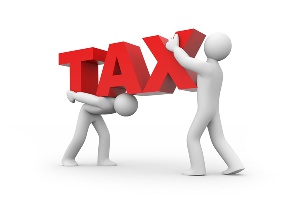The Ghana Revenue Authority has fixed 2017 to expand its Self-Assessment Scheme to cover every taxpayer in the country, Kwesi Oppong-Damoah, acting Deputy Commissioner Communications and Public Affairs of GRA has said.
The Self-Assessment (SA) regime, which is aimed at providing all tax payers with greater equity and fairness, has been instituted to encourage voluntary compliance.
Mr. Oppong-Damoah explained at a tax education forum for taxpayers drawn from Tema, Spintex and Legon Medium Tax Offices, that the self-assessment scheme will require taxpayers to fulfill their tax obligations by computing their own liabilities and submit the self-assessment.
The forum was held on the theme: ‘Encouraging voluntary tax compliance in the quest for maximum revenue mobilisation.’
Mr. Oppong-Damoah indicated that under the self-assessment regime tax payers are allowed not only to submit estimates of their chargeable incomes before the beginning of the basis period, but to also revise their estimates when in the course of the year, it is detected that the initial estimates may be incorrect.
He said it is important that tax payers keep good and proper records of their transactions to be able to file verifiable estimate of chargeable income and to also be able to support estimate with own budget for the year of assessment.
He added that returns, which will be accepted will be subject to verification by GRA on the accuracy and completeness of the items on the returns.
“Tax payers, who provide inaccurate, false or misleading statements in their self-assessment return forms or set out to intentionally evade tax could be penalised.
“Low estimates, late filing of estimates and low number of medium tax office are some of the main challenges of the self-assessment scheme,” he stated.
Ms. Georgina Zeng, Chief Revenue Officer of GRA, who spoke on client charter, said the GRA undertook taxpayer segmentation in order to provide quality service delivery to clients at a lower cost of collection and compliance.
She said efficient revenue collection could be achieved with the voluntary cooperation of the majority of taxpayers, adding that the GRA had moved from the adversarial position of the past to partnership with taxpayers.
Business News of Monday, 17 November 2014
Source: BFT













